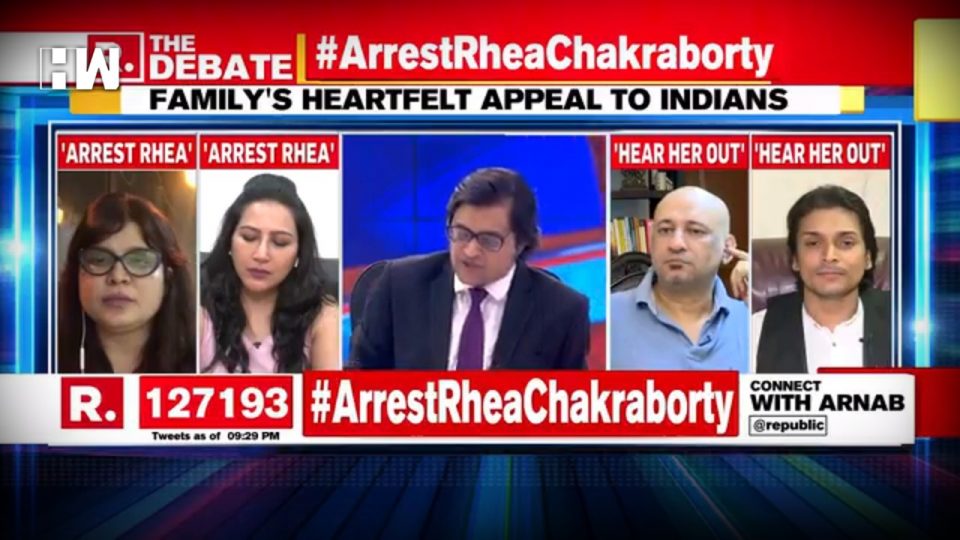Bombay High Court asked Republic TV if asking viewers who should be arrested in a case in which a probe is going on, and infringing upon a person’s rights qualified as “investigative journalism”.
On Wednesday, the Bombay High Court asked Republic TV if asking viewers who should be arrested in a case in which a probe is going on, and infringing upon a person’s rights qualified as “investigative journalism”, the Indian Express reported. The News Broadcasters Federation (NBF) was also asked by the court on why no suo motu action can be initiated for ‘irresponsible coverage’ of criminal sensitive matters and media trial in the Sushant Singh Rajput death case.
Chief Justice Dipankar Datta and Justice Girish S Kulkarni, heading the divisional bench, were hearing Public Interest Litigations (PILs) by eight former senior police officers from Maharashtra, as well as activists, lawyers and NGOs seeking restraining orders against “media trial” in actor’s death case
The reporting in the case was not intended to influence or prejudice the minds of the court and contentions of the petitioners were unfounded, the bench was informed by the various news channels on allegations made by petitioners.
Representing Republic TV, Advocate Malvika Trivedi rejected claims of the petitioner that the channel had tried to malign the name of Mumbai Police by accusing it of not carrying out an investigation in the case.
“There were some lacunae in the investigation by Mumbai police which the Supreme Court observed and hence allowed the investigation to be handed over to the Central Bureau of Investigation (CBI),” Trivedi said. She also stressed that “demand for transfer of investigation was made by the family of the actor and since the celebrity died, the public was also curious to know the real facts.”
Investigative journalism to unearth facts related to the death case was undertaken by the news channel, she added.
The bench pointed out to the grievances raised by petitioners over hashtag and social media posts carried by the channel seeking the arrest of Rhea Chakraborty, following Rajput’s death. “Why is it part of your channel news? Asking the public about their opinion on who should be arrested? Is this part of investigative journalism?” the court asked.
Responding to this, Adv Trivedi said: “These are public tweets and public opinions. The petition does not ask for relief pertaining to this. I am only saying that there is a reason and context why these tweets are there and a person who is aggrieved and has a locus standi, can approach the self-regulatory mechanism agency and get relief.”
The court, thereafter, stating that the bench was not singling out Republic TV, sought to know that when the probe was underway in the case on whether it was homicide or suicide, why the channel had taken a stand that it was a murder and whether the same was part of its investigative journalism.
Trivedi said that in previous cases, including scams, media had played a vital role in investigations and was appreciated for its contribution based on which arrests were made.
The bench, further expressing concerns over the coverage of Sushant Rajput death case, said: “There are certain suicide reporting guidelines. There should be no sensational headlines. Do you not have respect for the deceased? It is so unfortunate.”
When Trivedi argued that the court cannot say the media should not come out with the truth, CJ Datta responded: “We are not saying the media should be throttled from criticising government policies. Our concern is whether the Programme code was followed or not. Whether your report contravenes any of the laid down norms or not. You must not crossover your boundary or Laxman Rekha.”
The bench will continue the hearing on PILs on Friday.
As an independent media platform, we do not take advertisements from governments and corporate houses. It is you, our readers, who have supported us on our journey to do honest and unbiased journalism. Please contribute, so that we can continue to do the same in future.

